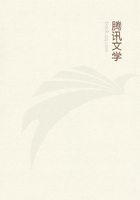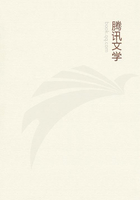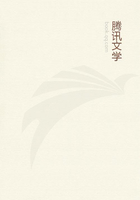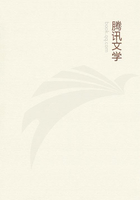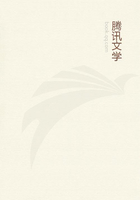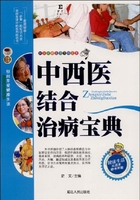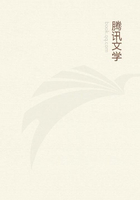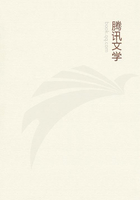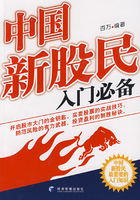"I hae a sodger laddie awa' i' the het pairts ye spak o'," said the woman: "gien ye hadna ta'en the milk, ye wad hae gi'en me a sair hert."
"Eh, gudewife, it wad hae gi'en me ane to think I had!" returned Donal. "The Lord gie ye back yer sodger laddie safe an' soon'!
Maybe I'll hae to gang efter 'im, sodger mysel'."
"Na, na, that wadna do. Ye're a scholar--that's easy to see, for a' ye're sae plain spoken. It dis a body's hert guid to hear a man 'at un'erstan's things say them plain oot i' the tongue his mither taucht him. Sic a ane 'ill gang straucht till's makker, an' fin' a'thing there hame-like. Lord, I wuss minnisters wad speyk like ither fowk!"
"Ye wad sair please my mither sayin' that," remarked Donal. "Ye maun be jist sic anither as her!"
"Weel, come in, an' sit ye doon oot o' the sin, an' hae something to ait."
"Na, I'll tak nae mair frae ye the day, an' I thank ye," replied Donal; "I canna weel bide."
"What for no?"
"It's no sae muckle 'at I'm in a hurry as 'at I maun be duin'."
"Whaur are ye b'un' for, gien a body may speir?"
"I'm gaein' to seek--no my fortin, but my daily breid. Gien I spak as a richt man, I wad say I was gaein' to luik for the wark set me.
I'm feart to say that straucht oot; I haena won sae far as that yet. I winna du naething though 'at he wadna hae me du. I daur to say that--sae be I un'erstan'. My mither says the day 'ill come whan I'll care for naething but his wull."
"Yer mither 'ill be Janet Grant, I'm thinkin'! There canna be twa sic in ae country-side!"
"Ye're i' the richt," answered Donal. "Ken ye my mither?"
"I hae seen her; an' to see her 's to ken her."
"Ay, gien wha sees her be sic like 's hersel'."
"I canna preten' to that; but she's weel kent throu' a' the country for a God-fearin' wuman.--An' whaur 'll ye be for the noo?"
"I'm jist upo' the tramp, luikin' for wark."
"An' what may ye be pleast to ca' wark?"
"Ow, jist the communication o' what I hae the un'erstan'in' o'."
"Aweel, gien ye'll condescen' to advice frae an auld wife, I'll gie ye a bit wi' ye: tak na ilka lass ye see for a born angel. Misdoobt her a wee to begin wi'. Hing up yer jeedgment o' her a wee. Luik to the moo' an' the e'en o' her."
"I thank ye," said Donal, with a smile, in which the woman spied the sadness; "I'm no like to need the advice."
She looked at him pitifully, and paused.
"Gien ye come this gait again," she said, "ye'll no gang by my door?"
"I wull no," replied Donal, and wishing her good-bye with a grateful heart, betook himself to his journey.
He had not gone far when he found himself on a wide moor. He sat down on a big stone, and began to turn things over in his mind.
This is how his thoughts went:
"I can never be the man I was! The thoucht o' my heart 's ta'en frae me! I canna think aboot things as I used. There's naething sae bonny as afore. Whan the life slips frae him, hoo can a man gang on livin'! Yet I'm no deid--that's what maks the diffeeclety o' the situation! Gien I war deid--weel, I kenna what than! I doobt there wad be trible still, though some things micht be lichter. But that's neither here nor there; I maun live; I hae nae ch'ice; I didna mak mysel', an' I'm no gaein' to meddle wi' mysel'!
I think mair o' mysel' nor daur that!
"But there's ae question I maun sattle afore I gang farther--an' that's this: am I to be less or mair nor I was afore? It's agreed I canna be the same: if I canna be the same, I maun aither be less or greater than I was afore: whilk o' them is't to be? I winna hae that queston to speir mair nor ance! I'll be mair nor I was. To sink to less wad be to lowse grip o' my past as weel's o' my futur!
An' hoo wad I ever luik her i' the face gien I grew less because o' her! A chiel' like me lat a bonny lassie think hersel' to blame for what I grew til! An' there's a greater nor the lass to be considert! 'Cause he seesna fit to gie me her I wad hae, is he no to hae his wull o' me? It's a gran' thing to ken a lassie like yon, an' a gran'er thing yet to be allooed to lo'e her: to sit down an' greit 'cause I'm no to merry her, wad be most oongratefu'! What for sud I threip 'at I oucht to hae her? What for sudna I be disapp'intit as weel as anither? I hae as guid a richt to ony guid 'at's to come o' that, I fancy! Gien it be a man's pairt to cairry a sair hert, it canna be his pairt to sit doon wi' 't upo' the ro'd-side, an' lay't upo' his lap, an' greit ower't, like a bairn wi' a cuttit finger: he maun haud on his ro'd. Wha am I to differ frae the lave o' my fowk! I s' be like the lave, an' gien I greit I winna girn. The Lord himsel' had to be croont wi' pain. Eh, my bonnie doo! But ye lo'e a better man, an' that's a sair comfort!
Gien it had been itherwise, I div not think I could hae borne the pain at my hert. But as it's guid an' no ill 'at's come to ye, I haena you an' mysel' tu to greit for, an' that's a sair comfort!
Lord, I'll clim' to thee, an' gaither o' the healin' 'at grows for the nations i' thy gairden.
"I see the thing as plain's thing can be: the cure o' a' ill 's jist mair life! That's it! Life abune an' ayont the life 'at took the stroke! An' gien throu' this hert-brak I come by mair life, it'll be jist ane o' the throes o' my h'avenly birth--i' the whilk the bairn has as mony o' the pains as the mither: that's maybe a differ 'atween the twa--the earthly an' the h'avenly!

